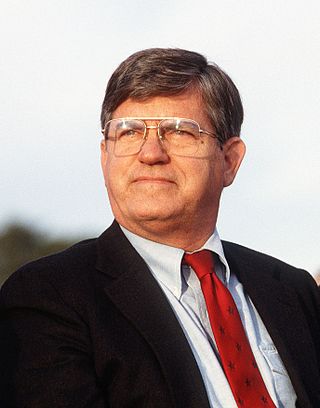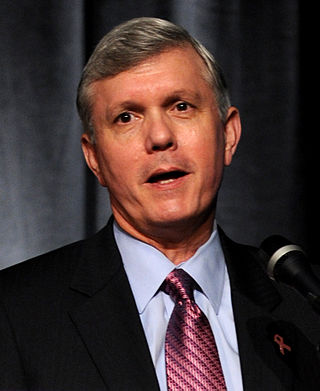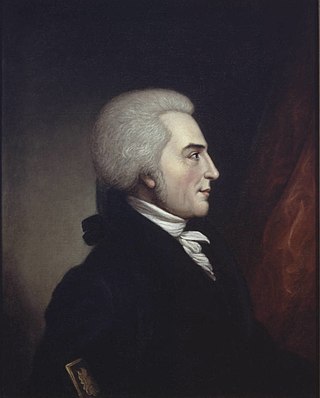
Charlotte is the most populous city in the U.S. state of North Carolina and the county seat of Mecklenburg County. The population was 874,579 at the 2020 census, making Charlotte the 15th-most populous city in the United States, the seventh-most populous city in the South, and the second-most populous city in the Southeast behind Jacksonville, Florida. Charlotte is the cultural, economic, and transportation center of the Charlotte metropolitan area, whose estimated 2023 population of 2,805,115 ranked 22nd in the United States. The Charlotte metropolitan area is part of an 18-county market region and combined statistical area with an estimated population of 3,387,115 as of 2023.

Mecklenburg County is a county located in the southwestern region of the U.S. state of North Carolina, in the United States. As of the 2020 census, the population was 1,115,482, making it the second-most populous county in North Carolina, and the first county in the Carolinas to surpass one million in population. Its county seat is Charlotte, the state's largest municipality.

Concord is the county seat and most populous city in Cabarrus County, in the U.S. state of North Carolina. At the 2020 census, the city had a population of 105,240. In terms of population, the city of Concord is the second-most populous city in the Charlotte metropolitan area and is the 10th-most populous city in North Carolina and 287th-most populous city in the U.S.

Richard A. Vinroot is an American politician and attorney from Charlotte, North Carolina. He served as the 52nd Mayor of Charlotte from 1991 to 1995. Vinroot ran unsuccessfully for Governor of North Carolina in 1996, 2000 and 2004. The City of Charlotte's Richard Vinroot International Achievement Award is named in his honor.

James Grubbs Martin is an American chemist and politician who served as the 70th governor of North Carolina from 1985 to 1993. A member of the Republican Party, he previously served six terms as the U.S. representative for North Carolina's 9th congressional district from 1973 to 1985.

Walter H. Dalton is an American attorney and politician who served as the 33rd Lieutenant Governor of North Carolina. A member of the Democratic Party, he served six terms in the state senate before his election to the office of lieutenant governor in 2008. As of 2024 he is the most recent Democrat to have served that office.

William Richardson Davie was an American statesman, politician, military general, Founding Father of the United States who served as the 10th Governor of North Carolina from 1798 to 1799. A member of the Federalist Party, Davie also served as a delegate to the Constitutional Convention as a representative of North Carolina. He is also one of the key founders of the University of North Carolina.

Patrick Lloyd McCrory is an American politician, businessman, and radio host who served as the 74th governor of North Carolina from 2013 to 2017. As of 2023, McCrory remains the only Republican elected as governor of North Carolina in the 21st century. A member of the Republican Party, he previously served as the 53rd mayor of Charlotte from 1995 to 2009.

Meredith Pinxton Snyder was a California property owner and businessman who was mayor of Los Angeles on three occasions from 1896 through 1921, and was also on the California Industrial Accident Commission.

The office of the Mayor of Charlotte, North Carolina is currently held by Democrat Vi Lyles, who took office in December 2017 after defeating Republican Kenny Smith in the November election.

Francis Irwin Osborne was the Attorney General of North Carolina from 1893 to 1896.

Frank Ramsay McNinch was born in Charlotte, North Carolina. He was a political figure who served as the mayor of Charlotte, as chairman of the Federal Power Commission, and as chairman of the Federal Communications Commission. In the 1928 presidential election, McNinch, a Democrat, supported Republican Herbert Hoover for president. After he was elected, Hoover appointed McNinch to a seat on the Federal Power Commission, leading to a split in the North Carolina Democratic Party that damaged the political fortunes of new U.S. Sen. Cameron Morrison, a friend of McNinch. He was later appointed FPC chairman by Franklin D. Roosevelt.
The following is a timeline of the history of Charlotte, North Carolina, United States.

Thomas Polk was a planter, military officer in the Continental Army during the American Revolutionary War from 1775 to 1781, and a politician who served in the North Carolina House of Commons, North Carolina Provincial Congress, and Council of State. Polk commanded the 4th North Carolina Regiment in the Battle of Brandywine. In 1786, Polk was elected by the North Carolina General Assembly to the Congress of the Confederation, but did not attend any of its sessions. Polk was a great-uncle of the 11th President of the United States, James K. Polk.
Ernest McArthur Currie was an American politician. He served as mayor of Charlotte, North Carolina from 1941 to 1943. He was born in Fayetteville, North Carolina to Duncan Black and Katherine Lee Currie. Currie attended the University of Paris, Davidson College (1916) and the University of North Carolina at Chapel Hill and earned a law degree. He also served in World War I. He was defeated by Herbert Hill Baxter in 1943 for the mayor's seat.

James Daniel Bishop is an American attorney and politician serving as the U.S. representative for North Carolina's 8th congressional district since 2019, when the district was numbered “9”. As a Republican, his district includes south-central Mecklenburg, Union, Anson, Richmond, Scotland, Robeson, Hoke, and southern Moore Counties. He served in the North Carolina House of Representatives from 2015 to 2017 and the Mecklenburg County Commission from 2005 to 2009. He served in the North Carolina State Senate from 2017 to 2019.

Jennifer Roberts is an American politician, businesswoman and former diplomat who served as the 58th mayor of Charlotte, North Carolina. She was elected on November 3, 2015 having previously served four terms on the Mecklenburg County Board of Commissioners. In 2012, she was the Democratic nominee for the United States House of Representatives in North Carolina's 9th congressional district.
The Charlotte Woman's Club (CWC) is the oldest civic organization in Charlotte, North Carolina. Charlotte Woman's club was and still is very active in the community. They established the first kindergarten in the city. During both world wars, they staffed city buses and the Southern Railway station with volunteers. They were also involved with organizing the YWCA, PTA and Traveler's Aid in Charlotte. They also brought the first public health nurses to Charlotte and helped create the League of Women Voters. The CWC also supported the creation of the Mint Museum of Art and the Domestic Relations Court.

The 2017 Charlotte mayoral election took place on Tuesday, November 7, 2017. Party primary elections were held on Tuesday, September 12, 2017. Second-round primaries would have been held on Tuesday, October 10, 2017, if they had been necessary, but both primary winners received more than the minimum 40 percent of the vote needed to avoid a runoff. The incumbent, Democrat Jennifer Roberts, was eligible to run for a second two-year term. She ran but lost the Democratic nomination in the primary. Two members of the City Council, Democrat Vi Lyles and Republican Kenny Smith, won the primaries and advanced to face each other in the general election. Vi Lyles defeated Kenny Smith in the general election, and became the 59th mayor of Charlotte, North Carolina.

DeAndrea Salvador is a Democratic member of the North Carolina Senate. She has represented the 39th Senate district since 2021. She is the founder and Chief Executive Officer of Renewable Energy Transition Initiative (RETI), a nonprofit that educates communities and leaders about energy conservation and affordability. She was a 2018 TED Fellow. Elected at age 30, Salvador is the youngest Black woman ever to serve in the North Carolina General Assembly.
















